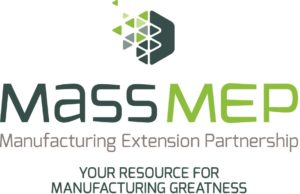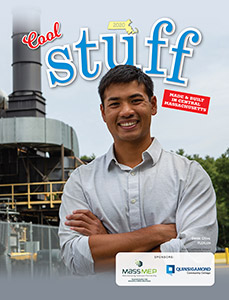Young manufacturing entrepreneurs find success in Connecticut
Many Millennials dream of opening their own businesses, but few take the plunge. Young and successful manufacturing entrepreneurs do exist, though – even right here in the Nutmeg State.
Take John Kraszewski, 31, who launched craft brewery Armada Brewing in 2017. Establishing a solid foundation with customers has been key to his success, Kraszewski said.
“Craft beer is a hand-sold product. You can’t just put a flier in a store and say, ‘Here are our beers. Go buy them.’ You have to meet with the account, develop a relationship with them, give out samples and talk about the beer,” he said.
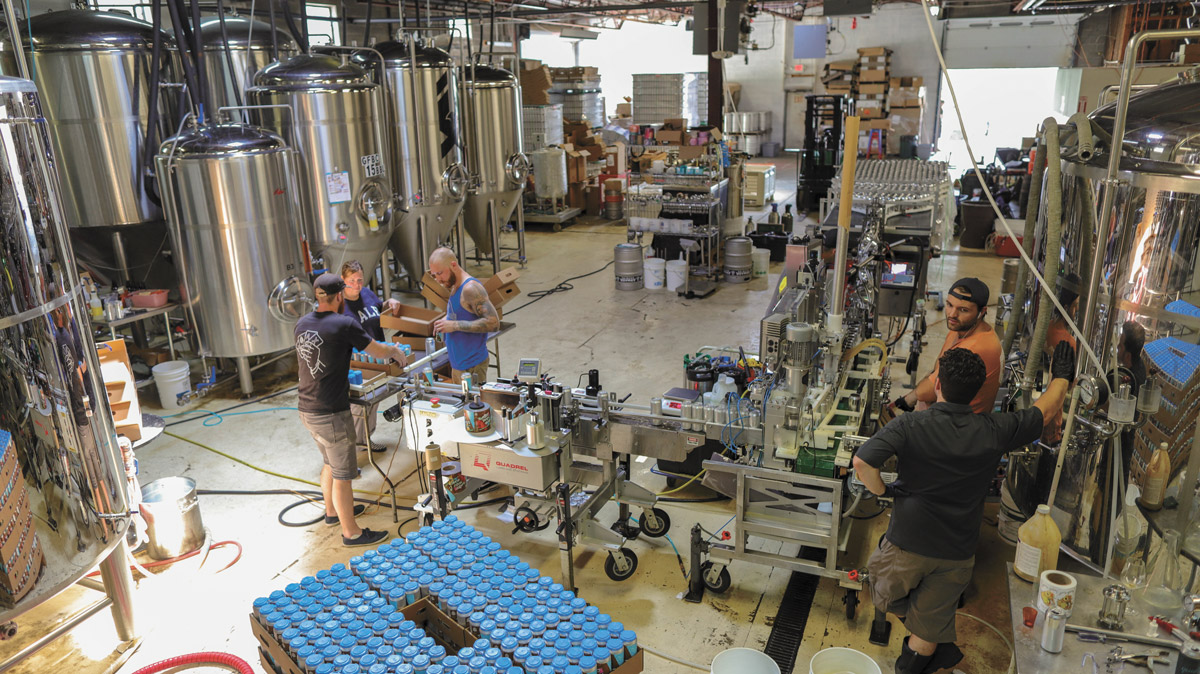
Armada Brewing offers about 20 varieties of beer out of its East Haven facility.
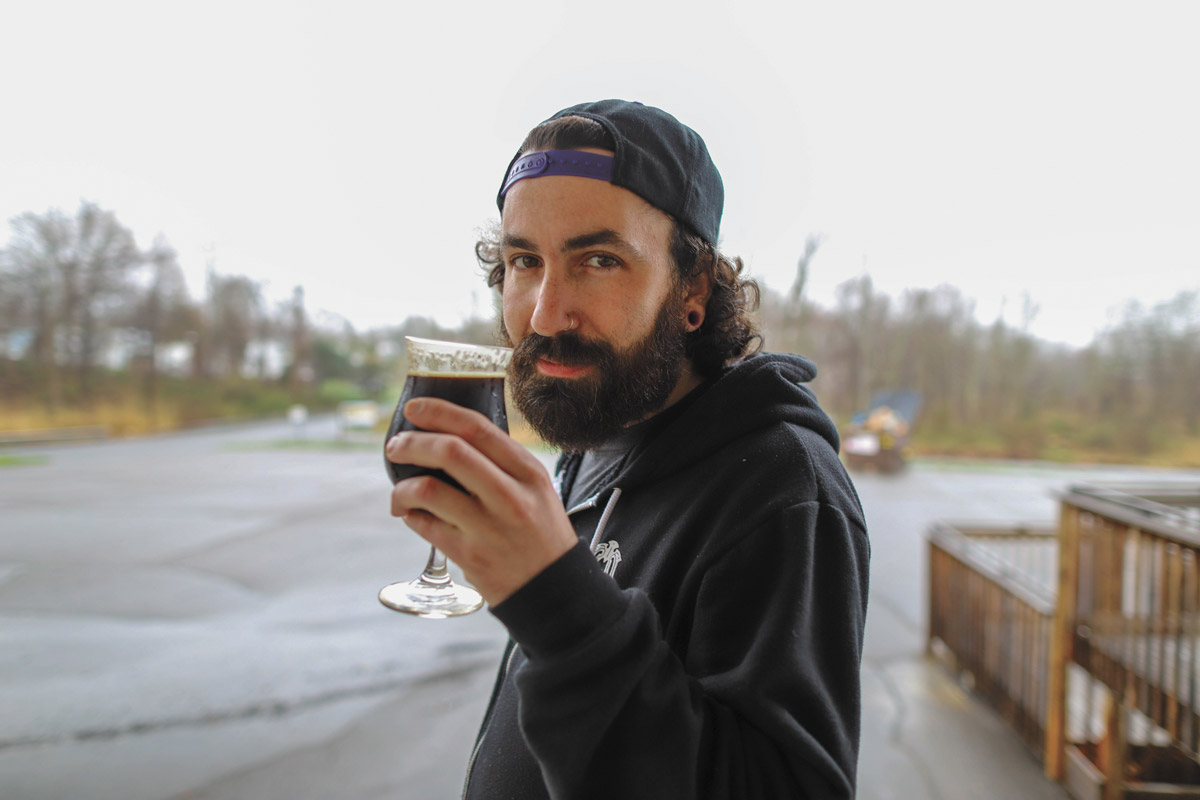
John Kraszewski, founder, Armada Brewing
“We can’t even keep up” with demand, Kraszewski said.
Establishing a new business can be tough, and Kraszewski said a manufacturing environment brings its own challenges.
Armada Brewing
Location: East Haven
Founded: 2017
Founder: John Kraszewski, 31
Makes: Craft beer
Long-term vision: To create a destination brewery and have multiple locations.

With Armada Brewing already producing about 20 different varieties of craft beer, the company is poised for growth in the industry, Kraszewski said.
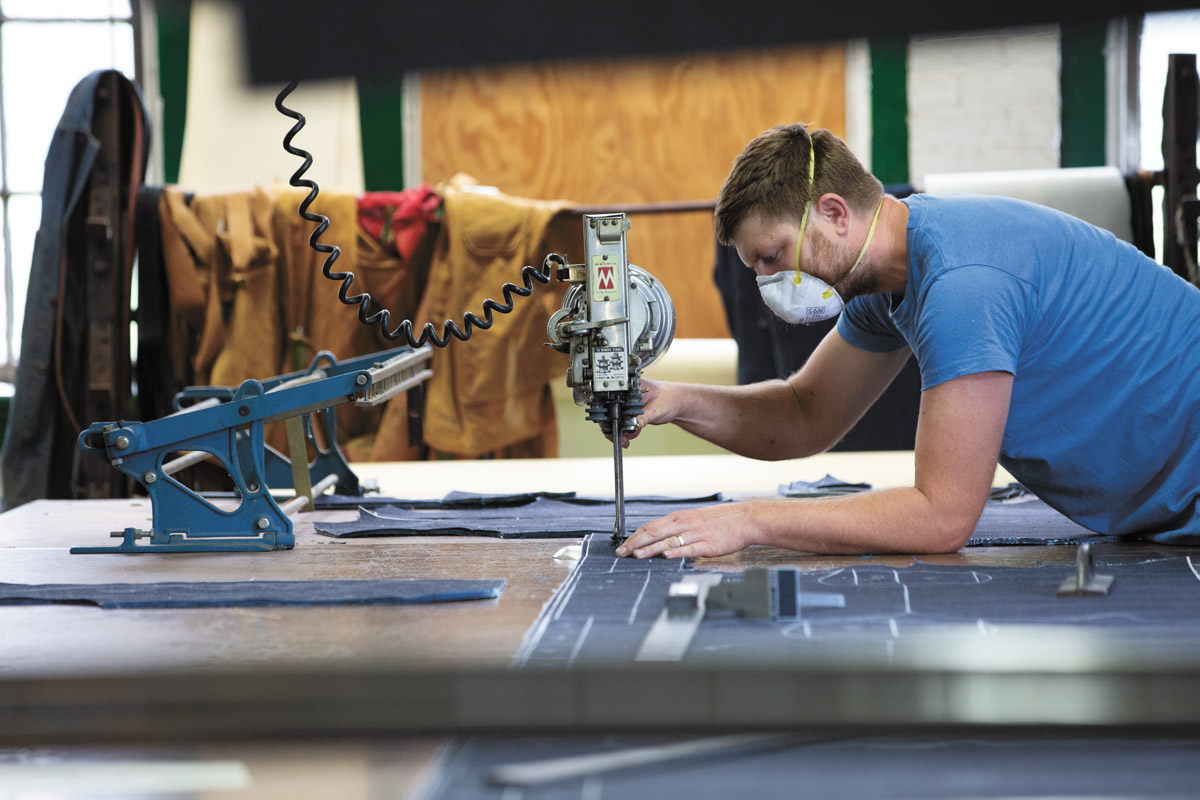
Luke Davis makes clothing for heavy use.
Going for durability
Outfitting restaurant and other commercial workers is no easy task, given the abuse their clothing must withstand each day. Ditto for restaurant odds and ends such as menu holders that regularly pass through many sets of hands.
But Luke Davis and the other two co-founders of Hartford Denim Co. are up to the challenge. All three men have personally experienced frustration and disappointment with work clothing that does not hold up to advertised promises, so they decided to take matters into their own hands. Despite limited backgrounds in tailoring, the three started to make clothing for themselves and then friends and family, and eventually, commercial accounts. They established Hartford Denim Co., aka HARDENCO, in 2010.
Today, Hartford Denim Co. makes heavy-duty clothing and aprons for commercial use, and has expanded its product lines to also include menu holders, check presenters, coasters and other small leather goods.
“We work with denim, leather, canvas – pretty much any of the heavier stuff,” said Davis, 32.
The founders chose to locate their company in Hartford because they all grew up in the area, but they quickly faced a number of challenges, Davis said, such as hefty taxes and rent. Additionally, they’ve found many Connecticut consumers are not as quick to spend money on premium work clothing as say, those in New York.
Hartford Denim Co., aka HARDENCO
Location: Hartford
Founded: 2010
Founders: Luke Davis, 32; David Marcoux, 34; Marshall Deming, 34
Makes: Heavy-duty clothing and aprons for commercial use
Long-term vision: To build a company to employ a small group of people and create products to be cherished for generations.
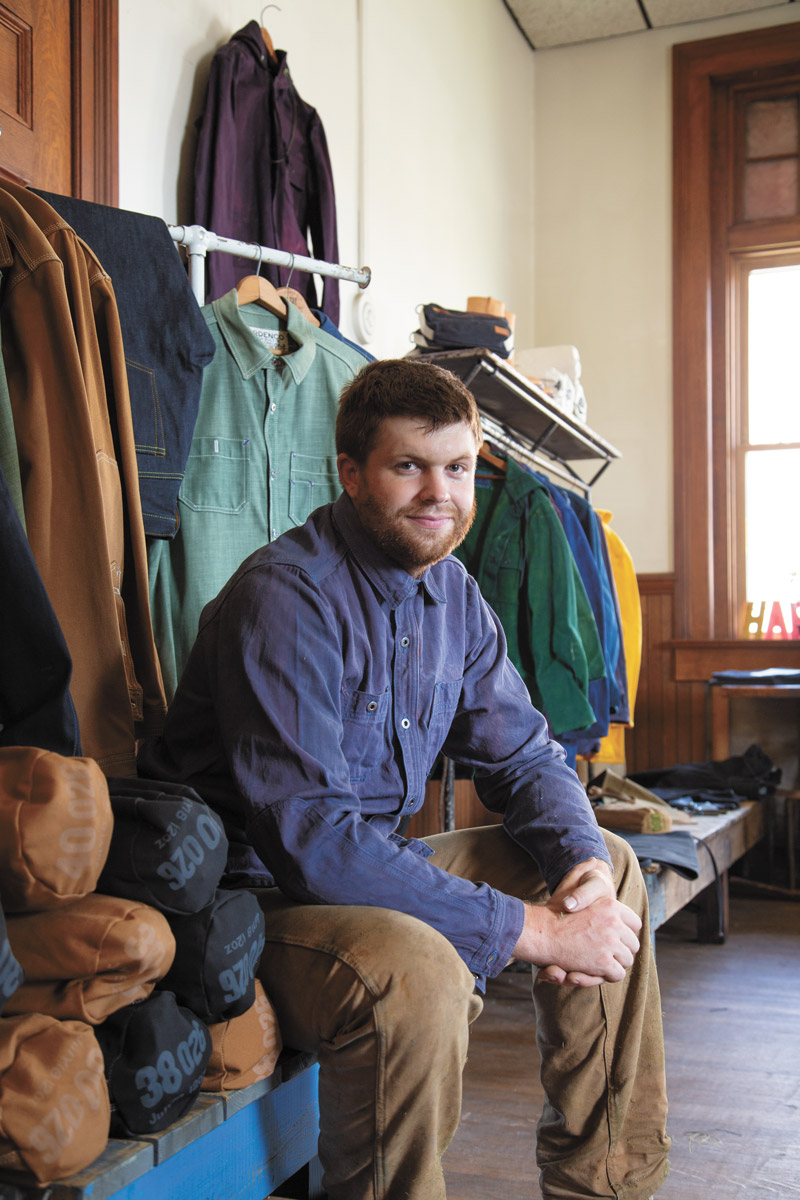
Luke Davis, co-founder, Hartford Denim Co.
“We’re able to cater to their needs” with little local competition, Davis said, and Hartford Denim Co.’s small size is an ideal match for the many local restaurants placing only small orders.
Given the significant costs associated with founding the company, Davis and his partners have needed to hold jobs in addition to the hours they put in each week at Hartford Denim Co. Getting the business off the ground has been pretty expensive, Davis said.
“So the only way to do it is the long, slow, laborious way,” he said. “We’d love to grow our business, but we don’t want to grow to some crazy size where we will no longer be able to deliver quality.”
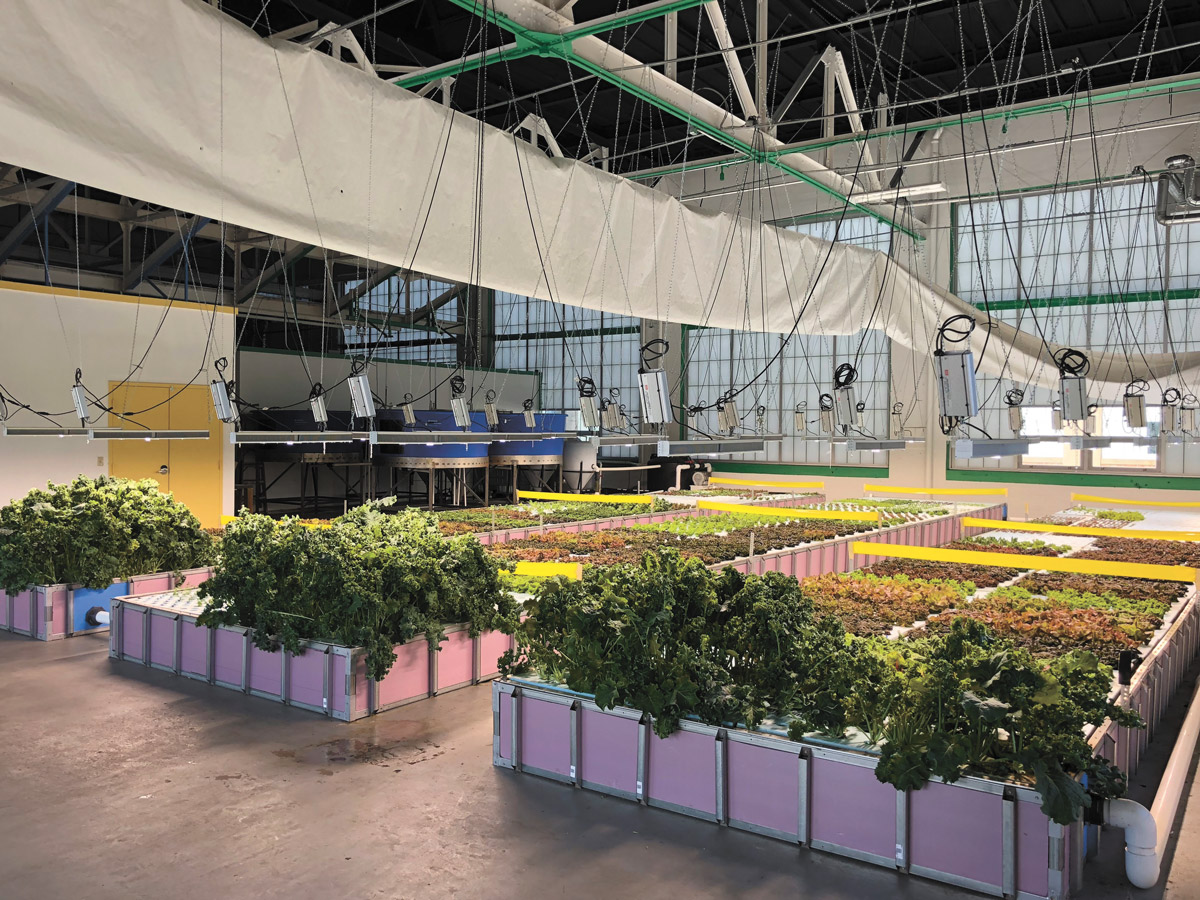
Putting an ancient method to work in modern times
Everybody’s gotta eat, but the path food takes before it reaches your plate can be circuitous, expensive and harmful to the environment. And in some instances, healthful food is simply hard to come by.
At Trifecta Ecosystems in Meriden, vegetables grow via aquaponic methods on an indoor soil-less farm, and are sold directly to consumers. The company provides aquaponic and other urban farming technologies to clients who want to grow food for themselves.
Trifecta Ecosystems
Location: Meriden
Founded: 2012
Founders and partners: Spencer Curry, CEO, 29; Kieran Foran, chief marketing officer, 28; Eric Francis, chief development officer, 30
Makes: Vegetables grown using aquaponic methods, with fish to come soon
Long-term vision: To create the city that
feeds itself.
The company seeks to help local farmers, schools and nonprofit organizations use aquaponics to grow food for themselves and their communities. Trifecta Ecosystems aims to proliferate and cultivate urban farmers and enhance the local food distribution network, Curry said, in part by setting up a franchise-like system to help their customers easily and rapidly deploy their own aquaponic systems.
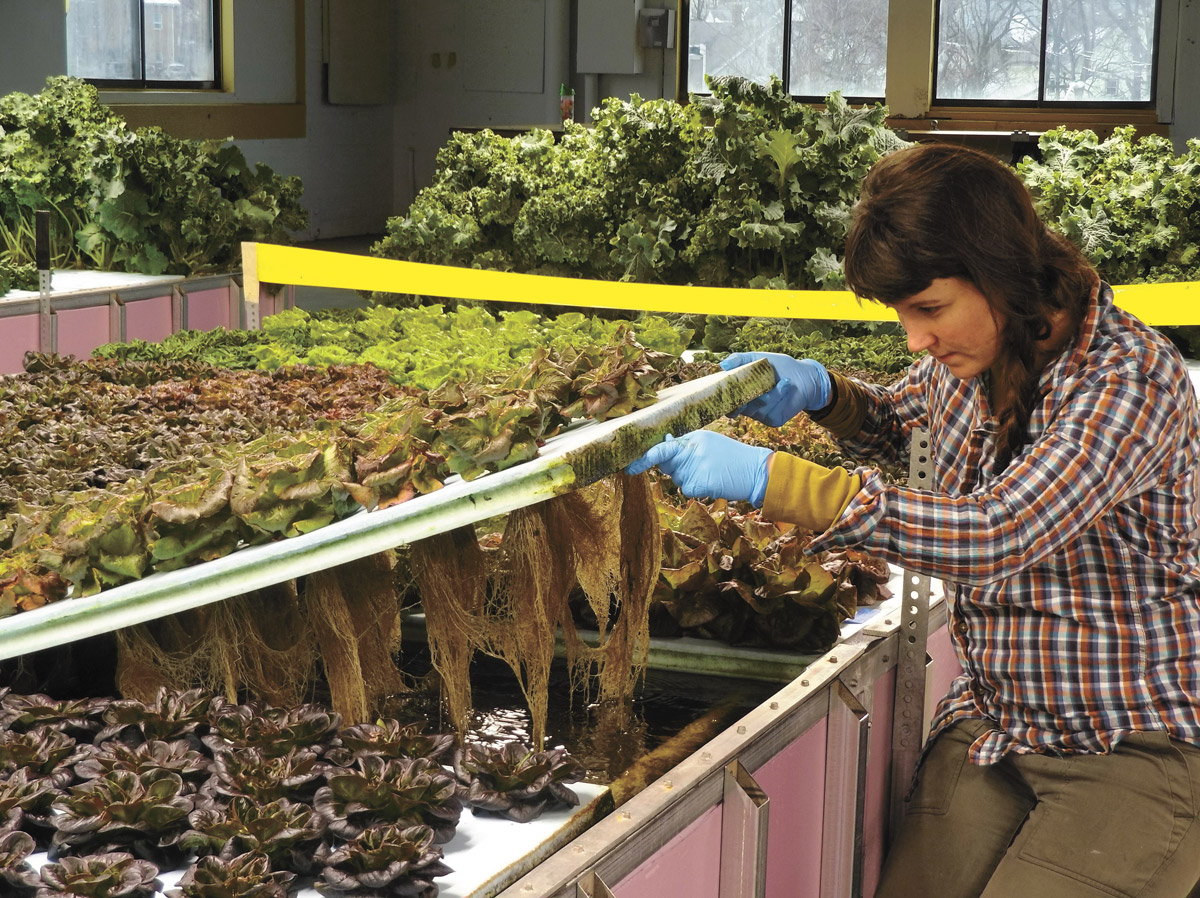
Trifecta Farm Manager Jill Shea examining the roots of multiple varieties of lettuce.
“That being said, there are definitely some things that still need work,” he said, “but I’m confident that those are getting looked at and worked on by competent people.”
Meanwhile, the founders of Trifecta Ecosystems have plenty to keep them busy. Aquaponics creates a symbiotic environment in which fish as well as plants can grow, with the fish fertilizing the plants, and the plants serving as a filtration system for the fish. So, plans are underway for the company to soon add fish to their product offerings.
“The industry itself is just taking off,” Curry said. “It’s an exciting time.”



